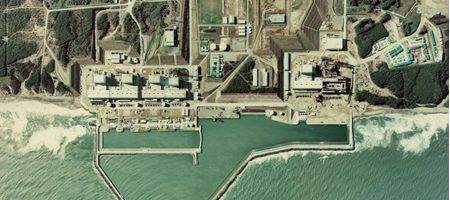Japanese officials are fighting to prevent a meltdown at its Fukushima Daiichi nuclear plant.

Following Friday’s magnitude 8.9 earthquake, cooling systems at all three of the plant’s functioning reactors were knocked out. Prime minister Naoto Kan has warned that the plant is still in an ‘alarming’ state following a blast at its number 3 reactor, probably a hydrogen explosion.
However, a blast on Saturday in the number 1 reactor did not breach the seal, and Japanese officials say that the other containment structures are also holding up well.
Other reactors at the site were either not yet online or had already been shut down for routine maintenance. Technicians have been using sea water to cool them – an uncponventional last resport which will leave the reactors unusable.
It’s the worst nuclear disaster since Chernobyl in 1986 – which had no effective containment structure at all. The authorities have evacuated 210,000 people from the area, and have declared an exclusion zone with a 20 kilometer radius around the plant.
Ron Chesser, director for the Center of Environmental Radiation Studies at Texas Tech University, was the first American scientist allowed inside the Chernobyl exclusion zone in 1992.
He says that although reports say that the reactors have been shut down safely, they must be still cooled constantly to avoid a meltdown of the core.
“The fact they’re having trouble cooling the reactors is going to trigger an emergency. There are certain trigger points for declaring an emergency at nuclear reactors,” he says.
“Reduction in cooling capacity would be one of those. Release of radiation would be another. Reactors are not like your car that you can turn off and walk away. They’re going to continue generating a great amount of heat until the core is disassembled. Without cooling water, then you stand a real chance of a meltdown of core that could result in a large release of radiation, potentially.”
The Fukushima Daiichi plant was commissioned in 1971, making it one of the country’s oldest. The number one reactor was originally due to be decomissioned last month but was given another ten years to live due to Japan’s heavty reliance on nuclear power.






